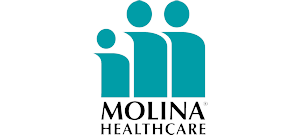
Therapy in IOPs
Is an IOP Addiction Therapy Right for You?
The flexible scheduling of IOPs, which often include evening and weekend sessions, allows clients to maintain jobs, school, or family responsibilities. This balance helps them practice sober living skills in real-world settings while receiving treatment.
IOPs succeed when clients have a drug-free living space and supportive family/friends. Those in unstable or triggering environments may need residential care first to establish sobriety.
IOPs often integrate therapy for depression, anxiety, or trauma alongside addiction treatment. Clients benefit from dual-diagnosis care while still living independently.
IOPs require motivation to attend sessions and complete assignments between meetings. They work best for those ready to engage deeply in their recovery process.
IOPs are more affordable than residential treatment while offering similar therapeutic benefits. Many insurance plans cover IOPs, making them accessible to more people.

Recovery Begins Here
What to Expect in a Therapy Session
Group therapy provides peer support, allowing you to share experiences and learn from others facing similar challenges. Sessions may also include educational components, such as understanding addiction science, developing healthy coping skills, and practicing relapse prevention strategies in real-world scenarios.

Does Therapy for Addiction Work?
Many individuals abuse substances in response to a co-occurring disorder, such as anxiety, depression, or OCD. Therapy during addiction treatment helps individuals recognize these underlying mental health issues. By treating the issues that lead to or otherwise contribute to substance abuse alongside addiction, we help individuals maintain their sobriety.

Benefits of Therapy for Addiction
As mentioned earlier with co-occurring disorders, therapy helps uncover the root causes of addiction, such as trauma, stress, or co-occurring mental health disorders. By addressing these issues, individuals can heal from the core problems driving their substance use. This deeper understanding leads to more sustainable recovery.
Instead of turning to drugs or alcohol, therapy equips individuals with practical tools to manage stress, anxiety, and cravings. Techniques like mindfulness, deep breathing, and cognitive restructuring provide healthier ways to handle life’s challenges. Over time, these skills become second nature, reducing relapse risk.
Addiction often damages trust and communication with loved ones. Therapy helps repair these relationships through family counseling and improved emotional regulation. Rebuilding these connections creates a stronger support system, which is crucial for long-term recovery.
Therapy provides relapse prevention strategies, helping individuals recognize early warning signs and take proactive steps to stay sober. By developing a personalized relapse prevention plan, clients gain confidence in their ability to maintain sobriety. This structured approach significantly lowers the chances of returning to substance use.
Beyond sobriety, therapy improves mental health, self-esteem, and life satisfaction. Clients often report feeling more in control of their emotions and decisions after participating in therapy. This holistic improvement makes recovery more fulfilling and sustainable.
Therapy connects individuals with others who understand the challenges of addiction, creating a network of encouragement and accountability. Group therapy sessions allow participants to share their struggles and successes, fostering a sense of belonging that combats the isolation often felt in addiction. These relationships frequently extend beyond treatment, providing lifelong sober support that helps maintain recovery.
Therapy sessions create a consistent framework that helps individuals establish healthy daily habits and rhythms. The regular check-ins and assignments between sessions help maintain focus on recovery goals. This structure is especially valuable in early sobriety when individuals are creating a new, substance-free lifestyle.
Getting Help For Yourself or a Loved One












